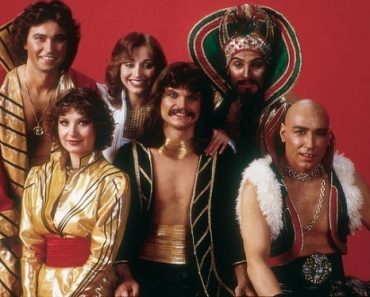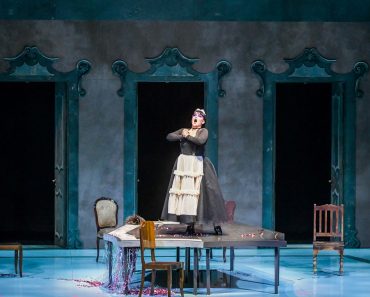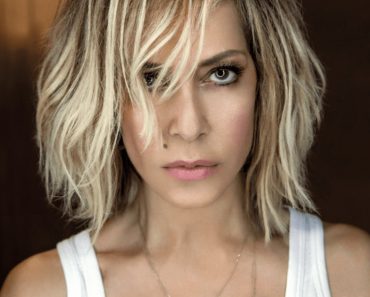KARACHI:
Devoted cinephiles might be aware that Christopher Nolan’s take on The Odyssey is en route with many surprises – and monsters – ahead. While a star-studded cast has surely boarded this adaptation of Homer’s narrative poem, there is much yet to be revealed. What we do know is that Nolan took a dip into historical drama recently with the illustrious 2023 film Oppenheimer. Therefore, while his turn towards Greek tales does come as a shock, it obeys his fascination with chronicled stories – real or fictional.
But the celebrated filmmaker isn’t the first to tap into the grotesque world of The Odyssey. In fact, his announcement coincides with the completion of Epic the Musical, a multi-saga concept album that imagines Odysseus of Ithaca’s untoward quests with the lyrical theatrics of a musical. But given that the narrative itself has been revisited time and again, what makes Epic so special?
Conflict beyond war
Spanning nine sagas and forty songs, Epic the Musical was developed by content creator Jorge Rivera-Herrans. Unless you are acquainted with the gargantuan tracklists of musicals like the historically dense Hamilton, Epic might seem like an overwhelming piece of media for the curious onlooker.
However, among other things, Epic’s strength lies in elevating familiar imagery from original tales dating back two millennia. The Iliad – Homer’s preceding poem – gave us the culturally popular Trojan Horse, which is where the journey of Rivera-Herrans’ Odysseus begins.
Here is a proud protagonist driven by the spirit of a young warrior despite having sacrificed ten years of his prime to war. Why? Because the King of Ithaca relentlessly swings his sword with only one goal in mind – to return to his wife Penelope and son Telemachus. Because Epic is not a retelling of armed conflict or strategic prowess, but an exploration of the lengths someone can go in the name of love.
Victory after a decade of bloodshed is hardly a treat for anyone, especially a man who is forced to confront his difficult decisions afterwards. Even if divinity propels him to make them.
Still, despite the moral quandaries, here stands a man with his might intact because none of his six hundred men died at war. Now all that stands between his fleet and home is a vastness of uncertainty – oceanic depths containing unimaginable horrors waiting to impede their journey.
‘Why not make it a game?’
Some might argue that being guided by a well-known source material should make it easy for an inspired creator to construct a new rendition. At the same time, however, the pressure is raised tenfold.
With a musical like Epic that features several popular figures from Greek mythology, it is all the more easier to lose sight of individual voices yet Rivera-Herrans knocks it out of the park.
Let’s take a look at a recurring deity. The clock’s tick-tock that supplements Athena’s motif sets her apart in moments when she’s influencing someone’s thoughts, establishing her as a prominent character.
Aside from her imposing presence, Rivera-Herrans has accorded sonic traits to each of the other Greek gods. For example, Poseidon rises with a chorus of waves and the urgent trickle of a sea shanty. Aeolus’ chime sets in like a drifting, almost mischievous breeze. Apollo’s tunes ring with subtlety, as if he’s the personification of music itself. And Zeus, of course, is quite the opposite with his domineering thunder and heart-rattling vocals.
Now with all this in mind, one can imagine what a narrative riddled with divine intervention has to offer. Put a few of these preternatural beings together and you get a tournament that plays out exactly how Rivera-Herrans intended this musical to be: a grand series of boss fights.
Even spine-chilling monsters are given a chance to steal the spotlight. Scylla’s vocals possess a siren-like allure to falsely emit comfort until her prey gets a closer look at the petrifying stretch of her limbs. With the revelation of her true form comes a dreadful edge to her vocals, sealing the fate of her helpless prey.
In Epic, every moment is a struggle, every saga a test of will. Each trial determines what humanity is willing to do in order to survive and seize what it yearns for.
A labour of love
Love, ruthlessness, betrayal, and other such themes would have been difficult to weave together without the combined effort and creativity of the crew. The strings of the musical came together online, through the passion of its dedicated creator who shared countless tidbits of the process with his followers on social media, especially on TikTok.
While Odysseus was the captain of his fleet of six hundred men, Rivera-Herrans helmed the fanbase of Epic with a rare level of involvement. From commissioning artists for visual narrative sequences to responding to fans with unwavering enthusiasm, the creator brought the community together in more ways than one.
“Always remember that for Epic, anyone can audition,” he confirmed in a video, which enabled those already passionate about his vision to board the project, hence redefining how audiences engage with musicals. With Epic, fans weren’t just privy to the nuts and bolts but were also invited to work closely with the man who inspires them.
In the end, there was no star power involved, nor a Broadway stage. There weren’t any grand deities or vicious monsters. There was only a vision and the collective power of community, reinforced by social media to bring this idea to fruition.
Epic sailed with an abundance of love as its oars. And now after years of patience, Rivera-Herrans’ ship has finally docked, having successfully conquered all monsters along the way.







